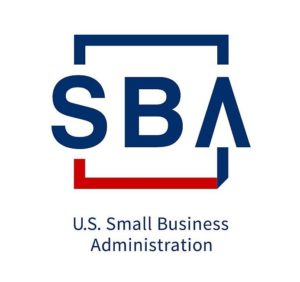
SBA Payment Forgiveness Expected to Fuel Acquisitions in 2021
As was the case last year, COVID-related federal stimulus benefits are expected to be a powerful catalyst driving deal activity in 2021.
 On December 27, 2020, Congress passed the Consolidated Appropriations Act, 2021, a $2.3 trillion stimulus bill, with $900 billion targeted specifically for COVID-19 relief. A portion of these funds will be used to extend the popular 2020 CARES Act SBA Debt Relief program.
On December 27, 2020, Congress passed the Consolidated Appropriations Act, 2021, a $2.3 trillion stimulus bill, with $900 billion targeted specifically for COVID-19 relief. A portion of these funds will be used to extend the popular 2020 CARES Act SBA Debt Relief program.
According to Rich Jackim, Managing Partner of Jackim Woods & Co, the extension includes significant benefits that provide buyers with powerful incentives to acquire a business in 2021, including:
- Six months of payment forgiveness for SBA 7(a) loans closed after February 1, 2021, and before September 30th, 2021. This includes principal and interest up to a maximum of $9,000 per month. That’s a $54,000 benefit to buyers.
- The SBA will waive the guaranty fee that must be paid by borrowers. This fee is typically around 3% of the loan amount and will now be zero for loans closed before September 30th, 2021. That’s an average saving to buyers of approximately $4,500.
- The SBA is increasing the amount of loan guarantees to lenders from 75% to 90%. This will decrease the risk to lenders and help ensure liquidity for deal financing.
Jackim urges buyers who want to take advantage of the extension to learn from the mad rush to meet last year’s deadline. It required tremendous coordination between sellers, buyers, counsel, intermediaries, and lenders. “The lesson buyers learned last year is not to procrastinate and try to close at least 30 days before the deadline to accommodate potential delays,” says Jackim.
What does this mean for sellers? If you are thinking of selling your business, now may be the right time despite the pandemic. In addition to record low interest rates, the SBA Payment Forgiveness Program provides buyers with extremely low financing costs. Last year we sold two businesses for over asking price because the buyers were able to afford to pay more due to the 2020 SBA Payment Forgiveness Program. Once the pandemic is under control, it is unlikely buyers will have access to the same generous funding they have today.
To learn more about taking advantage of the 2021 SBA Payment Forgiveness Program contact Rich Jackim at 224-513-5142 or at rjackim@jackimwoods.com.
Read More
Negotiating the Price Gap Between Buyers and Sellers

Sellers generally desire all-cash transactions; however, oftentimes partial seller financing is necessary in typical middle market company transactions. Furthermore, sellers who demand all-cash deals typically receive a lower purchase price than they would have if the deal were structured differently.
Although buyers may be able to pay all-cash at closing, they often want to structure a deal where the seller has left some portion of the price on the table, either in the form of a note or an earnout. Deferring some of the owner’s remuneration from the transaction will provide leverage in the event that the owner has misrepresented the business. An earnout is a mechanism to provide payment based on future performance. Acquirers like to suggest that, if the business is as it is represented, there should be no problem with this type of payout. The owner’s retort is that he or she knows the business is sound under his or her management but does not know whether the buyer will be as successful in operating the business.
Moreover, the owner has taken the business risk while owning the business; why would he or she continue to be at risk with someone else at the helm? Nevertheless, there are circumstances in which an earnout can be quite useful in recognizing full value and consummating a transaction. For example, suppose that a company had spent three years and vast sums developing a new product and had just launched the product at the time of a sale. A certain value could be arrived at for the current business, and an earnout could be structured to compensate the owner for the effort and expense of developing the new product if and when the sales of the new product materialize. Under this scenario, everyone wins.
The terms of the deal are extremely important to both parties involved in the transaction. Many times the buyers and sellers, and their advisors, are in agreement with all the terms of the transaction, except for the price. Although the variance on price may seem to be a “deal killer,” the price gap can often be resolved so that both parties can move forward to complete the transaction.
Listed below are some suggestions on how to bridge the price gap:
- If the real estate was originally included in the deal, the seller may choose to rent the premise to the acquirer rather than sell it outright. This will decrease the price of the transaction by the value of the real estate. The buyer might also choose to pay higher rent in order to decrease the “goodwill” portion of the sale. The seller may choose to retain the title to certain machinery and equipment and lease it back to the buyer.
- The purchaser can acquire less than 100% of the company initially and have the option to buy the remaining interest in the future. For example, a buyer could purchase 70% of the seller’s stock with an option to acquire an additional 10% a year for three years based on a predetermined formula. The seller will enjoy 30% of the profits plus a multiple of the earnings at the end of the period. The buyer will be able to complete the transaction in a two-step process, making the purchase easier to accomplish. The seller may also have a “put” which will force the buyer to purchase the remaining 30% at some future date.
- A subsidiary can be created for the fastest growing portion of the business being acquired. The buyer and seller can then share 50/50 in the part of the business that was “spun-off” until the original transaction is paid off.
- A royalty can be structured based on revenue, gross margins, EBIT, or EBITDA. This is usually easier to structure than an earnout.
- Certain assets, such as automobiles or non-business-related real estate, can be carved out of the sale to reduce the actual purchase price.
Although the above suggestions will not solve all of the pricing gap problems, they may lead the participants in the necessary direction to resolve them. The ability to structure successful transactions that satisfy both buyer and seller requires an immense amount of time, skill, experience, and most of all – imagination.
The post Negotiating the Price Gap Between Buyers and Sellers appeared first on Deal Studio – Automate, accelerate and elevate your deal making.

Tackling Growth Delusions When Buying a Business

There is no doubt about it, it can be exciting to buy a new business. However, in the process, it is very important that you don’t become unrealistic about future growth. Keep in mind that in the vast majority of cases, if a business is poised to quickly grow substantially, the seller would be far less interested in selling.
Richard Parker’s recent article for Forbes entitled “Don’t Be Delusional About Growth When Buying a Business” seeks to instill a smart degree of caution into prospective buyers. Parker notes that when evaluating a business and talking to the owner, many buyers come away with a sense that enormous growth is just “sitting there” waiting to be seized. In particular, Parker cautions those buyers who are buying into an industry that they know nothing about; those individuals should be very careful.
When buying into an industry where one has no familiarity, there can be a range of problems. The opportunities that you see may not have been tapped into by the existing owner for a range of reasons. You couldn’t possibly guess what these reasons might be without more of a knowledge base. Since you are an outsider, you likely lack the proper perspective and understanding. In turn, this means you may see growth opportunities that may not exist, as the seller may have already tried and failed. Summed up another way, until you actually own the business and are running it on a day to day basis, you simply can’t make a proper assessment of how best to grow that business.
The seductive lure of growth shouldn’t be the determining factor when you are looking for a business. A far more important and ultimately reliable factor is stability. The real question, the foundation of whether or not a business is a good purchase option, is whether or not the business will maintain its revenue and profit levels once you’ve signed on the dotted line and taken over. You want to be sure that the business doesn’t have to grow to remain viable.
As Parker points out, the majority of small business buyers will buy in a sector where they don’t have much experience, and that is fine. What is not fine is assuming that you can greatly grow the business. Of course, if new buyers can achieve that goal, that is great and certainly icing on the cake. But don’t depend on that growth.
In the end, everyone has some ideas that work and some that don’t. You may take over a business and, thanks to having a different perspective than the previous owner, are able to find ways to make that business grow. But realize that many of your ideas for growing the business may fail completely.
A professional business broker will be able to help you determine what business is best for you. A business broker will help keep you focused on what matters most and steer you clear of the mistakes that buyers frequently make when buying a business.

A Closer Look at 3 Major Factors to Consider When You Buy a Business

The simple but undeniable fact is buying a business is one of the single greatest financial decisions a person can make. Buying a business can lead to great financial success or great financial failure. This fact helps to underscore why it is so important to work with an experienced broker who can help guide you through the often labyrinthian process of buying a business.
In a July 2019 article from Smallbusiness.co.uk, author Kyle Carins explores three key factors that everyone should consider before they buy a business. The first factor covered in Carins’ article, “3 Things to Consider When Buying a Business,” is appeal vs. viability.
Appeal Vs. Viability
Not surprising, the most important variable for most prospective owners is that the business is indeed viable. Not being able to differentiate between an appealing business and one that is viable can lead to financial disaster.
As Carins points out, “Do you want to make money or do you want to fulfill a dream?” Sometimes those two variables can intersect, but not always and not often. In the end, it is vital to know whether a given business is, in fact, potentially lucrative.
However, as Carins points out, it is also important that you choose a business that you will enjoy. Nothing can be more spirit crushing than running a business that you truly hate, even if it is lucrative. Selecting the right business for you is something of a balancing act that must take in a variety of often competing variables.
Considering Hidden Costs
The second factor that Carins looks at is the issue of “hidden costs.” One of the key reasons that it is so important to work with a business broker is that a business broker understands these kinds of factors that you might otherwise overlook. Due diligence is amazingly important. For those who have never bought a business before, working with a business broker offers substantial protection against making a potentially serious mistake.
Second Opinions
The third factor examined in Carins article is “Getting a second opinion.” For Carins, getting a second opinion is actually linked to due diligence. He feels that additional opinions regarding a given business should go beyond working with professionals and should also include talking to friends and family who know you well. Additional opinions can help one see angles that might otherwise be missed.
Again, buying a business is complicated and will take up a good deal of one’s time and mental energy. Your friends and relatives, understand your personality and your wants and desires. Their input can be particularly beneficial.
Finding an experienced business broker can help you do more than simply establish whether or not a given business is a “good deal.” Brokers with years of proven experience can also help you determine whether or not a specific business is a good fit for you and your lifestyle.
